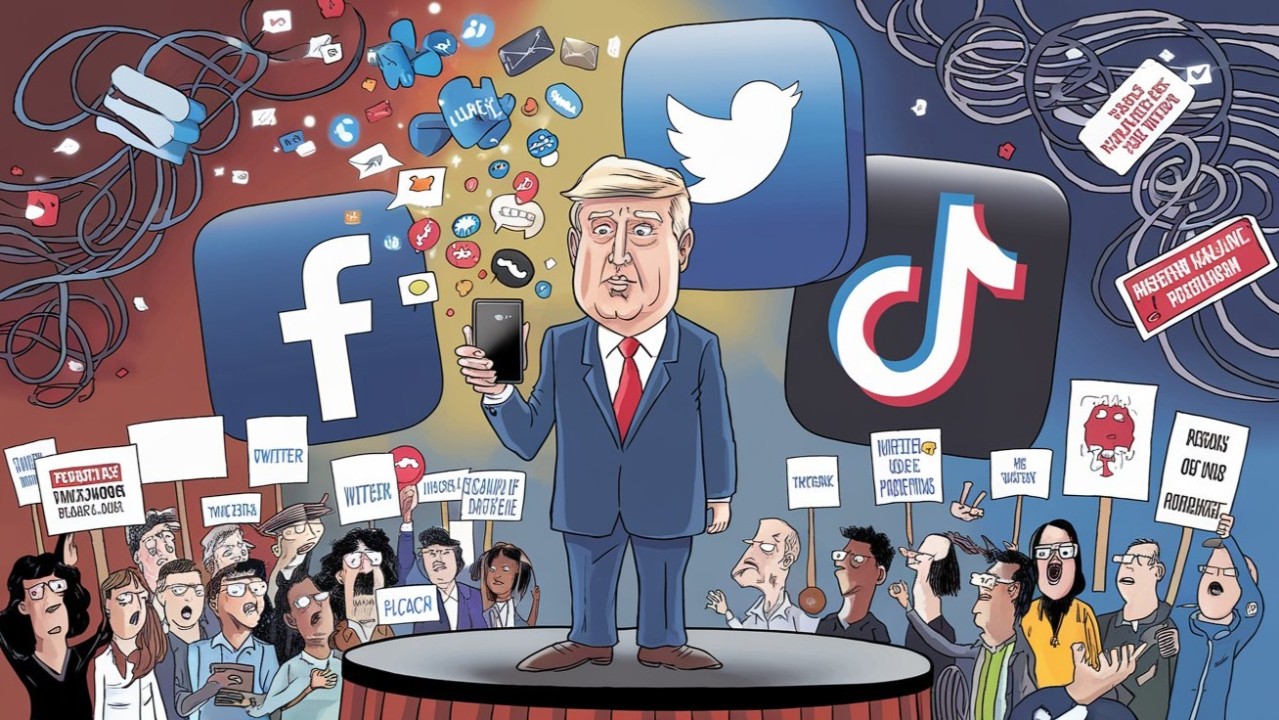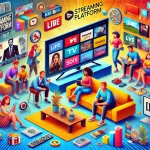Introduction
Social media has evolved far beyond being a tool for connection and entertainment. Today, it plays a central role in shaping political landscapes and influencing public opinion worldwide. Platforms like X, Facebook, TikTok, and Instagram have become virtual battlegrounds where narratives are created, challenged, and amplified within minutes.
From campaign launches to global protests, digital platforms now serve as the frontline of political communication. Governments, political parties, and activists use them to reach audiences directly, bypassing traditional media filters.
The Rise of Digital Politics
In the modern political era, online engagement often matters as much as real-world campaigning. Politicians use social media to build their image, share messages instantly, and mobilize supporters. Viral videos, hashtags, and memes have replaced traditional rallies as key tools for connecting with voters.
Digital platforms have also allowed citizens to participate more actively in political conversations. A single viral post can ignite national debates or hold powerful figures accountable, proving that digital activism has real-world consequences.
How Algorithms Shape Political Narratives
Every post, comment, and like on social media is filtered through algorithms that determine what users see. This invisible mechanism influences political understanding more than most people realize. Algorithms prioritize content that triggers engagement—often emotional, controversial, or sensational.
While this keeps users active, it can also polarize societies by reinforcing existing beliefs. Political strategists have learned to exploit these systems through targeted ads, influencer campaigns, and data-driven messaging that appeals to specific demographics.
This manipulation of online visibility has raised questions about fairness, transparency, and the ethics of digital campaigning.
Global Examples of Social Media’s Political Impact
In recent years, several elections and political movements have been deeply influenced by social media. The Arab Spring demonstrated how platforms could mobilize citizens against oppressive regimes. In the United States, online campaigning became a decisive factor in presidential races.
In countries like India and Brazil, digital outreach has helped leaders connect with millions of voters directly. Meanwhile, misinformation and fake news have challenged democratic integrity, forcing platforms to tighten content regulations.
These examples show both the potential and the danger of social media’s growing political influence.
The Celebrity Effect in Politics
Celebrities have always shaped culture, but in the digital era, their voices now carry political weight. From Hollywood stars to athletes and influencers, many use their platforms to support social causes or endorse political candidates.
When a celebrity speaks out online, millions listen instantly. This phenomenon has blurred the line between entertainment and activism. While some appreciate the awareness celebrities bring to important issues, others question their influence on public opinion and policy.
Still, the combination of fame and digital reach has made celebrity activism a powerful force in modern politics.
Technology and Election Transparency
As elections become increasingly digital, technology plays a crucial role in ensuring transparency and fairness. Online voting systems, blockchain verification, and AI-powered monitoring tools are being developed to protect electoral integrity.
However, cyber threats remain a major concern. Hacking attempts, data leaks, and misinformation campaigns have proven how vulnerable democratic systems can be. Governments and tech companies are under growing pressure to safeguard elections while maintaining freedom of speech.
The Future of Political Communication
The next phase of political communication will be even more digital. Artificial intelligence will allow personalized campaign messages, and augmented reality could bring virtual rallies to life.
As technology advances, the responsibility of both politicians and platforms will grow. They must balance engagement with ethics, ensuring that digital influence does not erode democratic values.
FAQs
How has social media changed politics? It has made politics more direct, engaging, and immediate while amplifying both transparency and polarization.
What are the risks of digital campaigning? Risks include misinformation, data manipulation, and unequal access to online visibility.
Can social media improve democracy? Yes, when used responsibly, it empowers citizens and promotes accountability.
Why are algorithms important in political communication? They determine what people see, shaping opinions and influencing how narratives spread.
Do celebrities influence political outcomes? Celebrity endorsements can increase awareness and voter engagement but can also oversimplify complex issues.
Conclusion
Social media has become the new center of political power, capable of shaping opinions, mobilizing voters, and transforming leadership itself. It has democratized communication but also introduced new challenges to truth and accountability.
As the digital and political worlds continue to merge, transparency and responsibility will define the next era of global democracy. The way societies manage this intersection will decide the health and strength of politics in the connected age.






